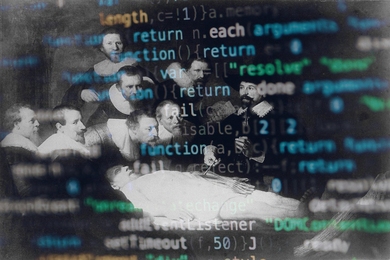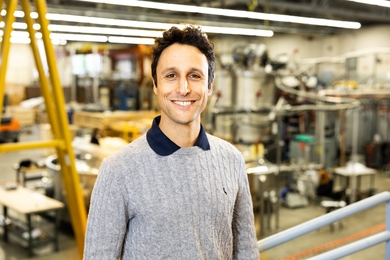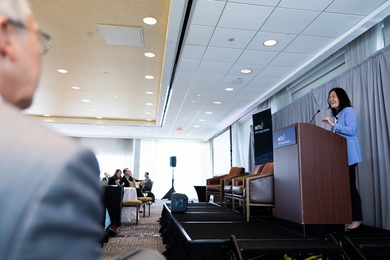Changes to the U.S. visa application process enacted since the Sept. 11 terrorist attacks delayed the travel plans of about 100 new and returning MIT students this fall, but none has been denied a visa based on new U.S. State Department security clearances. Seventeen are still waiting for approval.
Ten newly admitted students from China and Iran were denied visas because of "immigrant intent," not because of new national security procedures, according to embassy and consular officials.
The security delays began in July 2002, when all men between 16 and 45 who filed a nonimmigrant visa application were required to submit two additional forms requesting information about their families, the nature of their work, and their travel and military history, as well as the names of contacts in their countries who can vouch for the verity of the information.
Both men and women from countries named as state sponsors of terrorism - Iran, Iraq, Syria, Libya, Sudan and North Korea - were required to submit the supplemental forms. (Students from those six countries are now fingerprinted and photographed upon entry to the United States and required to report back to the State Department in 30 days for a second round of prints and photos. Additionally, they are required to check in one year later.)
Reviewing information on the supplemental forms delayed the visa process two to three months for most students, according to Associate Dean Danielle Guichard-Ashbrook, director of the International Students Office, which coordinates that aspect of the admissions process. But those months were especially stressful for the students because they didn't know how long the process would take.
"The problems started in July when the students applied for their visas," said Guichard-Ashbrook. "The consulates told the students that everything was in order, but that their applications were undergoing a review by the U.S. State Department that would take 'an indefinite period of time.' So we were getting calls and e-mails from all these frantic students who couldn't make their travel plans."
It wasn't only newly admitted students who ran into the delay, but also continuing students whose visas had expired. (A student visa is generally valid for three to five years. After that, a student cannot re-enter the U.S. without renewing the visa.) Of the 800 or so who needed visas, about 100 were delayed by these new security measures. By August, that number was down to 60; on MIT's fall Registration Day, 30 still had not cleared.
"It's hard to say what aspect of their background triggered these security checks. It could be a paper they wrote or a country they traveled to. Most of the students are from the Middle East, but not all. We had some Russians, French nationals, Malaysians, Indonesians and Canadians delayed. All but three were male," said Guichard-Ashbrook.
"I'm sure they're going to get their visas. I just don't know when," she said. "To get into MIT is such an arduous process in itself; you have to have the talent, the publications, the test scores and the recommendations. You're already a star in your field. It just doesn't seem like these exceptional students fit the profile of the people the government is looking for."
INSTITUTE IS INTERNATIONAL
About a quarter of MIT students are international - roughly 9 percent of undergraduates and 40 percent of graduate students. Last year there were 2,734 international students on campus.
"The Institute has been very responsive to the needs of students who have been subjected to these new security measures," said Guichard-Ashbrook.
Three delayed undergraduates (all freshmen) were allowed to defer until February 2003 in a significant departure from MIT policy. One was able to make it in time to begin the fall semester; the others will begin in the spring. Graduate students delayed by the new security measures were allowed to arrive late for the term or defer until spring, depending on the policies of their academic department.
According to embassy and consular officials, seven Chinese and three Iranian students were denied visas because of "immigrant intent" - the belief of the U.S. State Department that the applicant did not intend to return home. Four Iranians were admitted; three were denied based on immigrant intent. One is still delayed.
Guichard-Ashbrook blames in part a recent high-profile GRE (Graduate Record Exam) and TOEFL (Test of English as a Foreign Language) fraud scandal in China for the increased number of visa denials for Chinese students, but said the intensive scrutiny of Iranian student applicants began during the Iranian hostage crisis in 1979-81.
"The Iranians have been subject to additional scrutiny for many years," said Guichard-Ashbrook. "Since the Sept. 11 attacks, the government is starting to place people from other countries under that same level of scrutiny.
"The surprising thing is that we had all these expectations that the increased security measures in the U.S. and the fear of more attacks would cause a drop in the number of international student applications. But that didn't happen," she said. "Across the country, the numbers of student applications are up, and MIT is no exception.
"I can't speak about admissions and arrivals of international students at other institutions. But at MIT, we continued to admit as we always have - the best and the brightest. When we receive our final enrollment figures for September 2002, we expect the number of international students to have increased by nearly 100 this year," she said.
A version of this article appeared in MIT Tech Talk on October 2, 2002.




